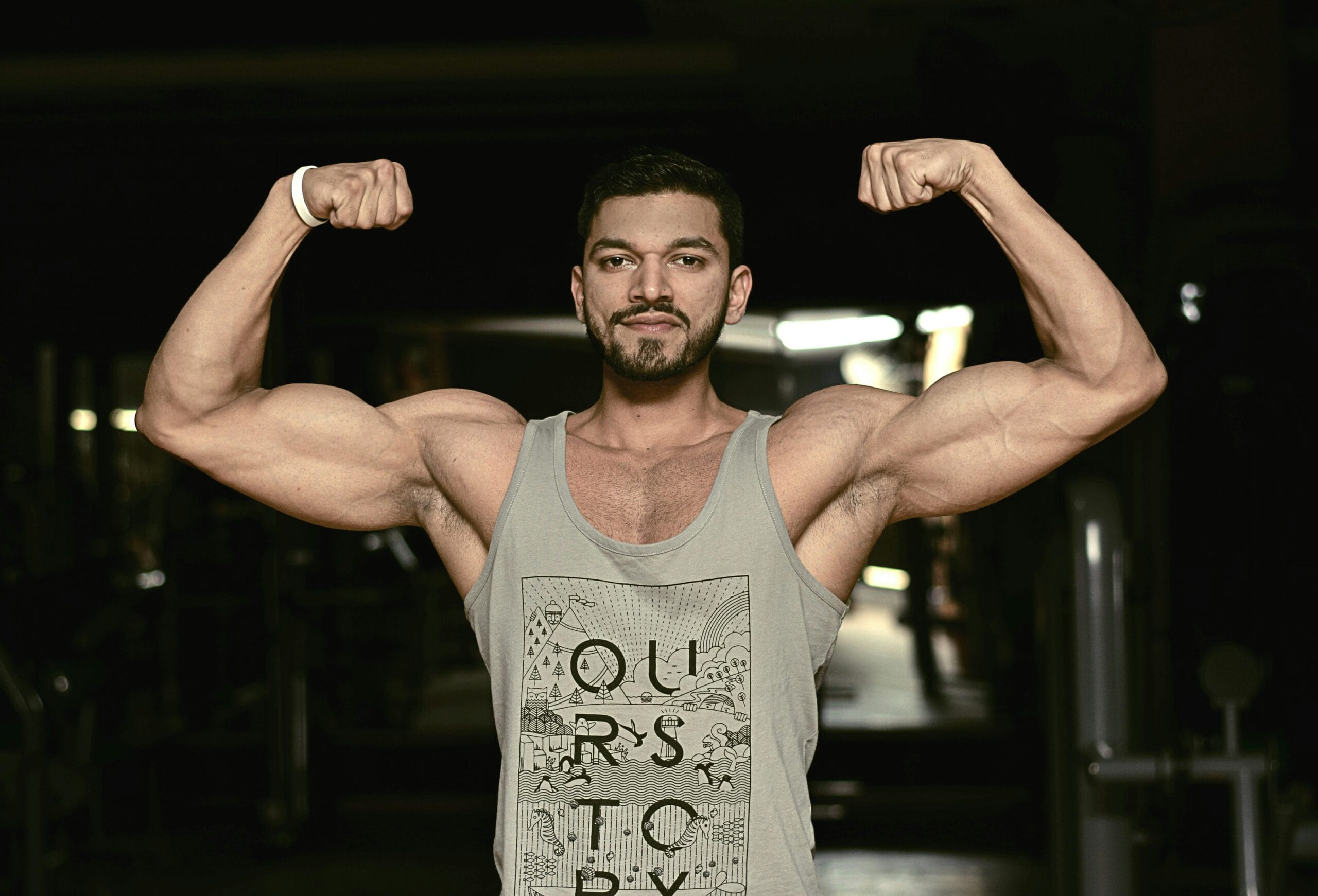In recent years, the vegan diet has gained immense popularity, not just among those seeking ethical and environmental benefits, but also among athletes and fitness enthusiasts aiming for muscle gain. This blog post delves into how to effectively build strength on a vegan diet, providing insights, statistics, and practical tips to help you succeed in your muscle-building journey. With the right approach, a vegan diet for muscle gain can be just as effective, if not more so, than traditional diets rich in animal products for achieving your fitness goals.

Understanding the Vegan Diet for Muscle Gain
A vegan diet excludes all animal products, including meat, dairy, and eggs. Instead, it focuses on plant-based foods such as fruits, vegetables, grains, legumes, nuts, and seeds. While some may assume that a vegan diet lacks sufficient protein for muscle gain, research shows that with careful planning, it can provide all the necessary nutrients for optimal performance and recovery.
Vegan Diet for Muscle Gain : The Importance of Protein
Protein is essential for muscle repair and growth. According to the American College of Sports Medicine, athletes should consume between 1.2 to 2.0 grams of protein per kilogram of body weight daily, depending on their training intensity and goals. For those following a vegan diet, it’s crucial to include a variety of protein sources to ensure adequate intake of all essential amino acids.
#### Key Vegan Protein Sources
Achieving muscle gain on a vegan diet requires strategic planning, particularly when it comes to protein intake. Here’s a breakdown of some of the best plant-based protein sources to help you meet your muscle-building goals:
1. Legumes
Legumes are a powerhouse of nutrients, offering a blend of protein, fiber, and essential vitamins. Lentils, chickpeas, and black beans are particularly noteworthy for their high protein content.
- Lentils: Contain approximately 18 grams of protein per cooked cup. They’re versatile, fitting into soups, stews, and salads.
- Chickpeas: Offer about 15 grams of protein per cooked cup and can be enjoyed roasted as a snack or blended into hummus.
- Black Beans: Packed with 15 grams of protein per cooked cup, they are perfect in tacos, chili, or grain bowls.
2. Tofu and Tempeh
Soy-based proteins like tofu and tempeh are staples in a vegan muscle-building diet.
- Tofu: Contains about 10 grams of protein per half-cup serving and can be grilled, stir-fried, or blended into smoothies for a creamy texture.
- Tempeh: Boasts around 15 grams of protein per half-cup and has a firm texture, making it excellent for grilling, crumbling into sauces, or using as a meat substitute.
3. Quinoa
Quinoa stands out as a complete protein, containing all nine essential amino acids required by the body for muscle repair and growth.
- Protein Content: Provides 8 grams of protein per cooked cup.
- Versatility: Use it as a base for salads, a side dish, or a warm breakfast bowl with fruits and nuts.
4. Nuts and Seeds
Nuts and seeds are excellent for adding both protein and healthy fats to your diet. They are also rich in omega-3 fatty acids, which support recovery and reduce inflammation.
- Almonds: Provide about 6 grams of protein per ounce and are perfect as a snack or in nut butter form.
- Chia Seeds: Contain 5 grams of protein per ounce and can be added to smoothies, oatmeal, or puddings.
- Hemp Seeds: Offer a whopping 10 grams of protein per 3 tablespoons, making them a fantastic addition to salads, yogurt, or energy bars.
5. Plant-Based Protein Powders
For those who struggle to meet their protein requirements through whole foods alone, plant-based protein powders are an excellent supplement.

Nutritional Considerations
While protein is vital, other nutrients play a significant role in muscle gain and overall health. Here are some key nutrients to focus on:
- Carbohydrates: They are the primary energy source for workouts. Whole grains, fruits, and vegetables should be staples in your diet.
- Healthy Fats: Avocados, nuts, and olive oil provide essential fatty acids that support hormone production and overall health.
- Vitamins and Minerals: Pay attention to nutrients like Vitamin B12, iron, calcium, and omega-3 fatty acids, which can be less abundant in a vegan diet. Consider fortified foods or supplements if necessary.
Statistics on Vegan Diet for Muscle Gain
- Protein Intake: A study published in the Journal of the International Society of Sports Nutrition found that vegan athletes can achieve similar muscle mass and strength gains as their omnivorous counterparts when consuming adequate protein.
- Muscle Recovery: Research indicates that plant-based diets can reduce inflammation and improve recovery times, which is crucial for muscle growth.
- Growing Popularity: According to a survey by the International Food Information Council, 39% of Americans are trying to incorporate more plant-based foods into their diets, reflecting a significant shift towards veganism.
Tips for Succeeding with a Vegan Diet for Muscle Gain
1. Plan Your Meals
Meal planning is essential for ensuring you meet your nutritional needs. Create a weekly menu that includes a variety of protein sources, carbohydrates, and healthy fats. This will help you avoid nutrient deficiencies and keep your meals exciting.
2. Focus on Whole Foods
While there are many vegan processed foods available, prioritize whole foods for optimal nutrition. Whole grains, fruits, vegetables, nuts, and seeds provide more nutrients and fiber compared to their processed counterparts.
3. Monitor Your Macronutrients
Keep track of your daily macronutrient intake to ensure you’re consuming enough protein, carbohydrates, and fats. Use apps or food diaries to help you stay on track.
4. Incorporate Strength Training
To build muscle, engage in regular strength training exercises. Aim for at least 3-4 sessions per week, focusing on compound movements like squats, deadlifts, and bench presses.
5. Stay Hydrated
Hydration is often overlooked but is crucial for muscle function and recovery. Aim to drink plenty of water throughout the day, especially before, during, and after workouts.
6. Consider Supplements
While a well-planned vegan diet can provide most nutrients, some individuals may benefit from supplements, particularly Vitamin B12, Vitamin D, and omega-3 fatty acids. Consult with a healthcare professional to determine what’s best for you.
Common Myths About Vegan Diets for Muscle Gain
Myth 1: Vegan Diets Lack Protein
Many believe that a vegan diet cannot provide enough protein for muscle gain. However, as discussed, there are numerous plant-based protein sources available that can meet and exceed protein requirements.
Myth 2: Vegan Diets Are Low in Nutrients
While it’s true that some nutrients may be less abundant in a vegan diet, with careful planning, you can obtain all the necessary vitamins and minerals. Incorporating a variety of foods is key.
Myth 3: Vegan Diets Are Not Suitable for Athletes
Athletes can thrive on a vegan diet. Many professional athletes, including bodybuilders and endurance athletes, have successfully adopted plant-based diets and achieved remarkable results.
Building strength on a vegan diet is not only possible but can also be highly effective with the right approach. By focusing on diverse protein sources, planning meals, and incorporating strength training, you can achieve your muscle gain goals while enjoying the numerous health benefits of a plant-based lifestyle. Remember, success comes from consistency, education, and a willingness to adapt your diet to meet your individual needs. Embrace the journey, and you’ll find that a vegan diet for muscle gain can be both rewarding and fulfilling.





